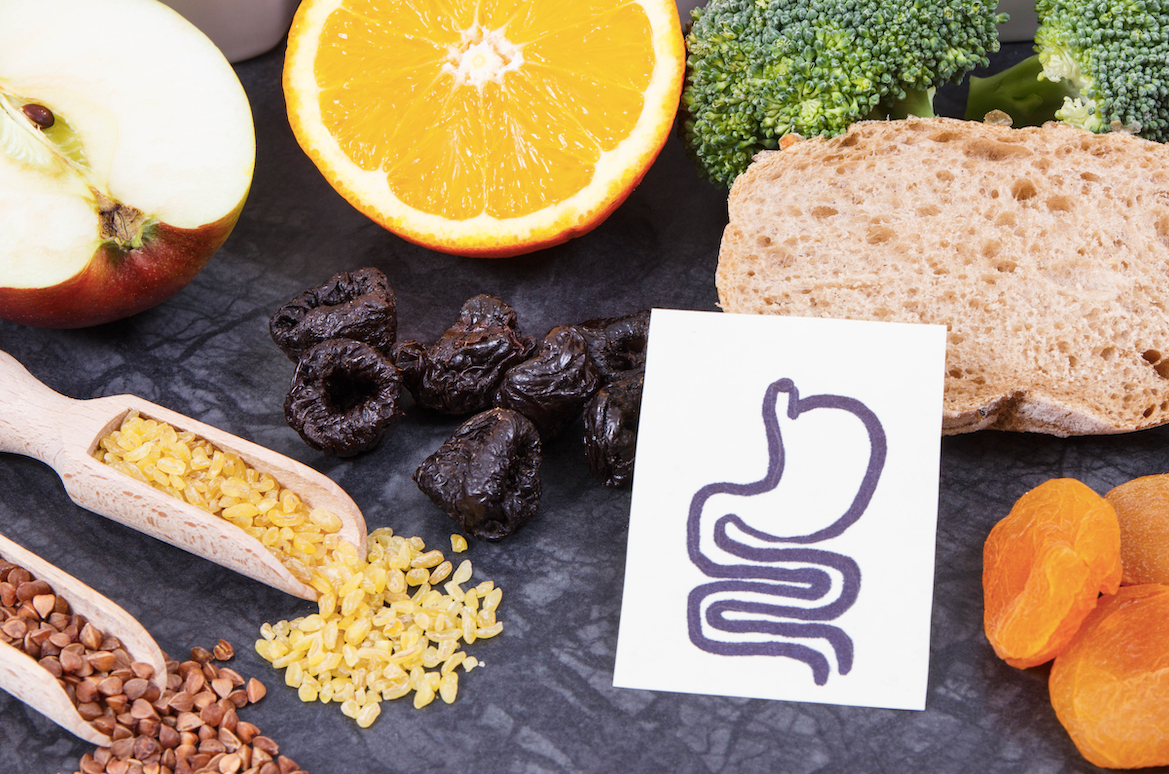Nutrition Tips To Help Students Improve Concentration And Focus

It’s a million-dollar question: does nutrition impact our ability to focus? The resounding answer is yes, it absolutely does.
Specific nutritional strategies can greatly support increased cognitive health, focus, and attention in children and adults alike. In modern society, screen time and other common lifestyle factors can significantly impact kids’ ability to concentrate—but diet and certain targeted supplements can make a notable difference.
By adjusting macronutrients (protein, fat, and carbohydrates), lowering refined carbohydrates, and increasing the intake of omega-3 fatty acids, iron, zinc, and other brain foods and nutrients, students can start the school year with an improved ability to concentrate. Let's dive into this month's wellness blog topic, nutritional tips to improve cognitive function.
SIGNS THAT STUDENTS ARE STRUGGLING WITH CONCENTRATION AND FOCUS
Kids are naturally active. Their ability to focus looks different from that of adults, and varies depending on their age. In fact, many school-aged kids today experience a constant influx of factors that make it harder for them to focus and concentrate. For example, increased screen time, lack of exercise, less social interaction, inadequate sleep, and mounting school and extra-curricular pressures all play a significant role.
While these aren’t always a major concern, keep an eye on the following to gauge whether or not your children need additional support for concentration and focus:
- Inability to sit still and maintain a train of thought
- Appears to often be daydreaming
- Difficulty following instructions
- Inability to stay organized
- Lack of interest
- Easily distracted
Some of these are unavoidable and completely normal in children. Still, if school success and daily tasks are being significantly interrupted, nutritional tips to improve cognitive function can help.

TIPS TO IMPROVE STUDENTS’ CONCENTRATION: HOW TO HELP KIDS FOCUS
If you sense a serious problem with your child’s ability to focus, it’s always important to check in with a provider. The following tips can help support concentration and focus in students, along with overall health.
AVOID FOOD DYES
Evidence suggests that artificial food coloring agents can impact students’ attention and focus, particularly red #3, red #40, and yellow #5. In the UK and European Union, most foods must come with a warning label if they contain certain food dyes, and many have been banned. It’s best to avoid processed and packaged foods with artificial dyes whenever possible.
ADJUST MACRONUTRIENTS
The typical American plate is high in carbohydrates, often has too much (or unhealthy types) of protein, and is low in healthy fats and high in unhealthy fats. Try to fill half of your child’s plate with colorful vegetables and fruits (with more emphasis on the vegetables), a serving of animal or plant-based protein, and a serving of healthy fats like avocado, olives, olive oil, coconut, coconut oil, nuts, seeds, and nut and seed butters.
Carbohydrates are quickly digested and can cause blood sugar levels to fluctuate, which impacts attention and focus. Protein and fats are more slowly digested macronutrients that provide more sustainable energy for the brain and body.
BALANCE REFINED CARBS
In very active kids, carbohydrates must not be labeled “bad” across the board. Though food made with flours is what we typically think of when we talk about carbohydrates, vegetables and fruits are also a source of carbohydrates and unarguably an important part of the diet. However, quality is of utmost importance, along with exercising moderation when it comes to refined carbohydrates like white flour bread and pasta, cookies, cakes, crackers, and other commercial baked goods.
PAIR CARBS WITH PROTEIN AND HEALTHY FATS
Enjoying carbohydrate-rich foods with protein and fat will help prevent a blood sugar rollercoaster, as well as related discomforts like brain fog, irritability, lack of concentration, and more. Healthier carbohydrate options include vegetables, fruits, starchy vegetables like plantain and sweet potato, and legumes.
INCORPORATE FOODS HIGH IN ZINC, IRON, B-VITAMINS, VITAMIN C, AND OMEGA-3S
While a well-balanced plate of whole foods will support concentration, incorporating specific nutrients to help kids focus is key. Zinc, iron, B vitamins, vitamin C, and omega-3 fatty acids have all been shown to boost concentration and brain health in various ways, so incorporating foods rich in these nutrients can be beneficial. Ask Dr. Diana today about what supplements she recommends for those who feel they are not meeting their daily vitamin and mineral intake.
PINPOINT FOOD INTOLERANCES
Known food allergies and sensitivities should be taken into account, but other food intolerances that are challenging to test for could also play a role in difficulty with concentration and focus. If you suspect that your child has a food intolerance, try eliminating that food for 2-4 weeks and observe any changes in your child’s ability to focus. Depending on age, the most common food intolerances tend to be gluten and dairy. This is something that Dr. D can help monitor with as well. Inquire today.

BRAIN FOODS FOR KIDS
These brain foods are rich in the nutrients mentioned above, and can support students both in school and beyond.
FISH AND SEAFOOD
Fatty fish are rich in omega-3 fatty acids, such as salmon and tuna. Wild fish is ideal if you can find it locally, but mercury contamination is an important consideration in these larger fish. Sardines are an excellent omega-3-rich alternative, and you can combine them with other types of fish if your kids aren’t crazy about sardines.
WALNUTS AND FLAXSEEDS
Both walnuts and flaxseeds are rich in alpha-linolenic acid (ALA), a plant-based source of omega-3 fats. Flaxseeds are easily added to smoothies, yogurt, salads, and any other dish you can imagine. If possible, buy whole flax seeds and grind them for a few days at a time in a seed or coffee grinder, then store them in the refrigerator to prevent oxidation.
GREEN LEAFY VEGETABLES
Green leafy vegetables are an excellent source of magnesium and iron, among many other important vitamins and minerals. You can mix a handful into a smoothie if your kids don’t like the taste. Great choices include kale, spinach, arugula, lettuce, Swiss chard, collard greens, and bok choy.
CRUCIFEROUS VEGETABLES
Cruciferous vegetables include broccoli, kale, bok choy, cabbage, and Brussels sprouts, among others. Research suggests that they are likely to support brain health and function due to a sulfur-containing compound called glucosinolate. This compound slows the breakdown of a neurotransmitter called acetylcholine, which plays a key role in learning and memory.
VITAMIN-C-RICH FOODS
Vitamin C enhances iron absorption by capturing non-heme iron and storing it in a form that is better absorbed by the body. Vitamin C-rich foods include citrus fruits like oranges and lemons, green leafy vegetables, strawberries, and bell peppers.
MEAT
HIGH QUALITY MEAT*. Iron serves many important functions in the body. Its primary role is transporting oxygen as a part of red blood cells. Low iron status has been shown in children who deal with concentration and focus issues, along with zinc, the hidden them in a child's nutrition. Great food sources of iron include organ meats, red meat, shellfish and fish, legumes, spinach, and dark chocolate.
KIDS SUPPLEMENTS FOR ATTENTION AND FOCUS
It’s ideal to push whole foods as the primary source of nutrients for kids, but there are many circumstances in which discussing supplements is needed. Nutrient depletion in soil, picky eating habits, and other factors can make it important to fill nutritional gaps with high-quality supplements.
Along with foods that are rich in these same nutrients, students often benefit from supplementation with omega-3 fatty acids, zinc, B vitamins, magnesium, and iron. In the case of iron, ferritin levels should always be tested with your doctor before supplementation. Levels below 50 are typically improved with a high-quality iron supplement.

FINAL THOUGHTS
The last years of increased screen time, lower social activity, and heightened stress has highlighted the growing problem of students’ inability to focus at school. Kids of all ages depend on a solid diet of whole foods to support their psychological, emotional, and physical health, and by providing them with a balanced plate of whole foods rich in brain-supportive nutrients, avoiding food dyes, and considering supplementation when necessary, you can help your children greatly increase their focus, concentration, and overall wellbeing.
Contact Dr. Diana Mladenoff today to learn more. Schedule an appointment by calling or texting our Arizona Wellness Clinic at 1 (602) 524-0222.

All credits go to source .





